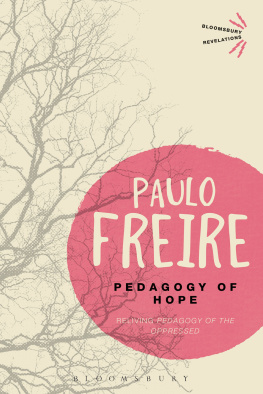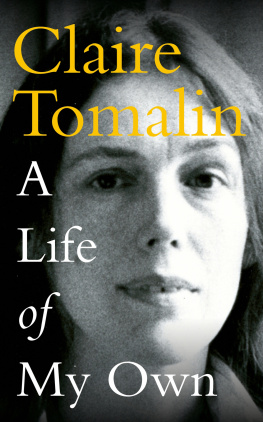of related interest
Communication Skills for Working with Children and Young People
Introducing Social Pedagogy
3rd edition
Pat Petrie
ISBN 978 1 84905 137 8
Learning Through Child Observation
2nd edition
Mary Fawcett
ISBN 978 1 84310 676 0
Listening to Children
A Practitioners Guide
Alison McLeod
ISBN 978 1 84310 549 7
Working with Children and Teenagers Using Solution Focused Approaches
Establishing Respectful and Effective Communication
Judith Milner and Jackie Bateman
ISBN 978 1 84905 082 1
Child Development for Child Care and Protection Workers
2nd edition
Brigid Daniel, Sally Wassell and Robbie Gilligan
Foreword by Professor David Howe
ISBN 978 1 84905 068 5
Child Well-Being
Understanding Childrens Lives
Edited by Colette McAuley and Wendy Rose
Foreword by Dame Gillian Pugh
ISBN 978 1 84310 925 9
Improving Outcomes for Children and Families
Finding and Using International Evidence
Edited by Anthony N. Maluccio, Cinzia Canali, Tiziano Vecchiato, Anita Lightburn, Jane Aldgate and Wendy Rose
Foreword by James K. Whittaker
ISBN 978 1 84905 819 3
Child Welfare Outcomes Series
The Developing World of the Child
Edited by Jane Aldgate, David Jones, Wendy Rose and Carole Jeffery
Foreword by Maria Eagle MP
ISBN 978 1 84310 244 1
Social Pedagogy and Working with Children and Young People
Where Care and Education Meet
EDITED BY CLAIRE CAMERON
AND PETER MOSS
Jessica Kingsley Publishers
London and Philadelphia
First published in 2011
by Jessica Kingsley Publishers
73 Collier Street
London N1 9BE, UK
and
400 Market Street, Suite 400
Philadelphia, PA 19106, USA
www.jkp.com
Copyright Jessica Kingsley Publishers 2011
All rights reserved. No part of this publication may be reproduced in any material form (including photocopying or storing it in any medium by electronic means and whether or not transiently or incidentally to some other use of this publication) without the written permission of the copyright owner except in accordance with the provisions of the Copyright, Designs and Patents Act 1988 or under the terms of a licence issued by the Copyright Licensing Agency Ltd, Saffron House, 610 Kirby Street, London EC1N 8TS. Applications for the copyright owners written permission to reproduce any part of this publication should be addressed to the publisher.
Warning: The doing of an unauthorised act in relation to a copyright work may result in both a civil claim for damages and criminal prosecution.
Library of Congress Cataloging in Publication Data
Social pedagogy and working with children and young people : where care and education meet / edited by Claire Cameron and Peter Moss.
p. cm.
Includes bibliographical references and index.
ISBN 978-1-84905-119-4 (alk. paper)
1. Early childhood education. 2. Child care. 3. Child care services. 4. Critical pedagogy. I. Cameron, Claire. II. Moss, Peter.
LB1139.23.S66 2010
372.21--dc22
2010053778
British Library Cataloguing in Publication Data
A CIP catalogue record for this book is available from the British Library
ISBN 978 1 84905 119 4
eISBN 978 0 85700 232 7
Contents
CHAPTER 1
| Social Pedagogy: Current Understandings and Opportunities |
CLAIRE CAMERON AND PETER MOSS
Social pedagogy: What is it?
This book is about an approach to and profession for working with people that is widespread across Continental Europe yet little known or understood in the UK or the rest of the English-speaking world: social pedagogy. The book title talks about social pedagogy and working with children, but this approach and the profession of social pedagogue have the capacity to work not only with children but also with young people and adults of all ages from birth to 100 years old, as some Danish pedagogues would say. They also have the capacity to work across a wide range of settings from nurseries to residential homes for young people, from schools to services for adults with disabilities. This border-crossing potential challenges many of the divisions and specialisms we have put in place in developing our human services.
What, though, does this approach consist of? How should we understand social pedagogy? One aim of this book is to provide some answers to these questions, deepening the readers understanding of the social pedagogic approach and the profession of social pedagogue. We avoid, however, any claim to provide the answer and definitive understanding. For what will become clear as the book unfolds is the variations both theoretical and national in understandings of social pedagogy and how to practise it. This diversity has led Petrie (2006) to suggest that the term pedagogies might be more appropriate and has been the subject of a recent book (Kornbeck and Jensen 2009). It has also contributed to the conclusion of Walter Lorenz that social pedagogy is an important but widely misunderstood member of the social professions (2008, p.625).
Things are further complicated because social pedagogy is always a political practice. As such, it can assume different political complexions, having the potential to be conservative or restorative, an agent of authoritarian government or a vehicle for democratic and emancipatory ends. It can collude with or question political regimes, seeking to maintain, modify or undermine them.
The diversity of social pedagogy in Europe makes it difficult to grasp. But this difficulty is also an opportunity. The unknown creates an uncertainty that makes one puzzle. Such curiosity is the basis of social pedagogy. The professional, known as a social pedagogue or, in some countries, pedagogue, or variants of the term such as social educator wants to examine, using theoretical knowledge, why something happened, what was happening to prompt its occurrence and what the consequences might be. In studies, social pedagogues often say it depends in response to an interview question, because they want to take into account the context before forming a judgement or making a decision.
Social pedagogy is not only diverse and contingent but very broad in scope. It was first named as such in Germany in 1844, by Karl Mager, as the theory of all the personal, social and moral education in a given society, including the description of what has happened in practice (Winkler 1988, p.41 as translated by Gabriel Thomas). It retains this breadth of action and ambition today. It can be described as where education and care meet, as being concerned with childrens upbringing, as a broadly educational approach to social problems, education that takes place in everyday lives, and as education in its broadest sense (Petrie et al. 2006). The contemporary Danish understanding adopted by Jensen and Hansen (2002, p.5) is that the aim is:
Improving learning and developing options on behalf of ideals of individuals and society. The pedagogical theories combine i) ideals of a good life (philosophy), ii) understandings of individuals and groups and their resources and needs (psychology and biology) and iii) understandings of social resources, values and demands (cultural and social sciences).








